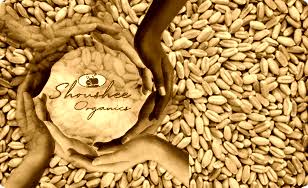When we talk about the rich cultural tapestry of India, the Agrawau (also spelled as Agrawal) community stands out as a unique blend of tradition, business acumen, and a deep sense of heritage. With a history that dates back to ancient times, this community has not only preserved its customs but has also adapted to the modern world without losing its essence. In this article, we will explore the traditions, practices, and modern adaptations of the Agrawau people, shedding light on how they have managed to remain rooted in their cultural identity while evolving with the times.
Who Are the Agrawau?
The Agrawau community traces its origins to the ancient city of Agra or possibly Agar Sena, located in modern-day Uttar Pradesh. Historically, the Agrawals were a community of traders and merchants, known for their sharp business skills. They are followers of Maharaja Agrasen, a legendary king who is believed to have founded this community based on principles of equality, non-violence, and economic self-sufficiency.
Mythical Origins of Maharaja Agrasen
According to legend, Maharaja Agrasen established a kingdom where each new family received a brick and a coin from every other family, ensuring no one started from nothing. This tradition laid the foundation for their principles of community support and mutual aid. It is said that Maharaja Agrasen also advocated for non-violence and was an early adopter of democratic values, which have continued to influence the Agrawau community.
Cultural Traditions of the Agrawau
The Agrawau community is steeped in traditions that have been passed down through generations. These practices reflect their values of charity, community, and respect for heritage.
Festivals and Celebrations
Agrawaus celebrate a range of Hindu festivals, with special reverence for Diwali, Holi, and Navratri. During Diwali, they honor Lakshmi, the goddess of wealth, seeking her blessings for prosperity. As merchants and traders, this festival holds particular importance as it symbolizes the start of a new financial year.
In addition to these widely celebrated festivals, the Agrawau community also holds special events to commemorate the birth and deeds of Maharaja Agrasen. Agrasen Jayanti, for example, is a significant day when people come together to celebrate their legendary founder, participating in processions, charitable events, and spiritual gatherings.
Marriage Traditions
Agrawau marriages are rich in rituals and customs, with the emphasis on preserving familial and community bonds. Marriages are often arranged, with careful attention given to aligning family values, traditions, and business ties. The wedding ceremonies are grand, often lasting several days, with elaborate rituals such as the Kanyadaan (giving away of the bride), Saptapadi (seven sacred steps), and Vidaai (farewell).
Dowry is generally discouraged within the Agrawau community, aligning with the values set forth by Maharaja Agrasen. Instead, there is a strong emphasis on the bride and groom building a life together based on mutual respect and love.
Philanthropy and Charity
A distinctive feature of the Agrawau community is their commitment to dharma (duty) and charity. Following the teachings of Maharaja Agrasen, Agrawaus believe in giving back to society. Many members of the community are known for their involvement in philanthropy, setting up educational institutions, hospitals, and various charitable foundations.
In the past, it was common for the wealthier Agrawaus to adopt a communal approach to wealth-sharing, offering support to those in need within the community. This principle has evolved, but the essence remains the same—Agrawaus continue to be leaders in social welfare and community service.
Modern Practices and Adaptations
As the world has changed, so too has the Agrawau community. While deeply rooted in their traditions, Agrawaus have adapted to modern society, particularly in the fields of business, education, and global outreach.
Business Prowess
Agrawaus have long been known for their expertise in trade and commerce. Many prominent business families in India and abroad trace their roots back to this community. Over the years, they have moved from traditional sectors like grain trade and textiles to modern industries like technology, finance, and pharmaceuticals. Today, Agrawau businessmen and entrepreneurs are found across the globe, making significant contributions to the global economy.
The spirit of entrepreneurship is nurtured from a young age within the community. Many Agrawau families emphasize financial education and management skills, ensuring that the next generation is well-equipped to handle the challenges of modern business.
Education and Professionalism
One of the most significant shifts within the Agrawau community has been the increasing importance placed on education. Historically, while business was the primary focus, today’s Agrawaus are also excelling in various professional fields, such as medicine, law, technology, and academia.
Many members of the younger generation are pursuing higher education, both in India and abroad. This shift has opened new opportunities for the community, allowing them to diversify beyond traditional business roles and contribute to society in new and innovative ways.
Technology and Globalization
With the advent of technology, the Agrawau community has embraced digital transformation. Businesses run by Agrawaus are increasingly leveraging e-commerce platforms, digital marketing, and fintech innovations to reach a global audience. Many members of the community have also ventured into tech startups, leading the charge in India’s burgeoning tech ecosystem.
Globalization has also expanded the community’s horizons. While Agrawaus traditionally resided in northern India, today they are spread across the world. In countries like the US, UK, and UAE, Agrawau communities thrive, often coming together to celebrate their shared heritage while adapting to their adopted homes.
Maintaining Cultural Identity in a Modern World
Despite these modern adaptations, the Agrawau community remains deeply connected to its cultural roots. Organizations and associations like the Agrawal Samaj (Agrawal Society) exist to preserve and promote the community’s cultural identity. These groups host events, offer scholarships, and encourage younger generations to learn about their heritage.
At the same time, Agrawaus have found ways to blend their traditions with modern practices. For instance, while arranged marriages are still common, the younger generation is increasingly taking part in the decision-making process, ensuring that personal compatibility is prioritized along with family values.
Conclusion
The Agrawau community stands as a testament to the balance between tradition and modernity. While rooted in centuries-old customs and practices, they have adapted to the changing times with grace and resilience. From their rich cultural heritage to their modern business success, the Agrawaus continue to be a dynamic and influential community.
Also Read: The Multifaceted Life of Malia Manocherian: Business, Advocacy, and Beyond
Their ability to evolve without losing sight of their values is a lesson in adaptability, one that many communities can learn from in today’s rapidly changing world.





Leave a Reply